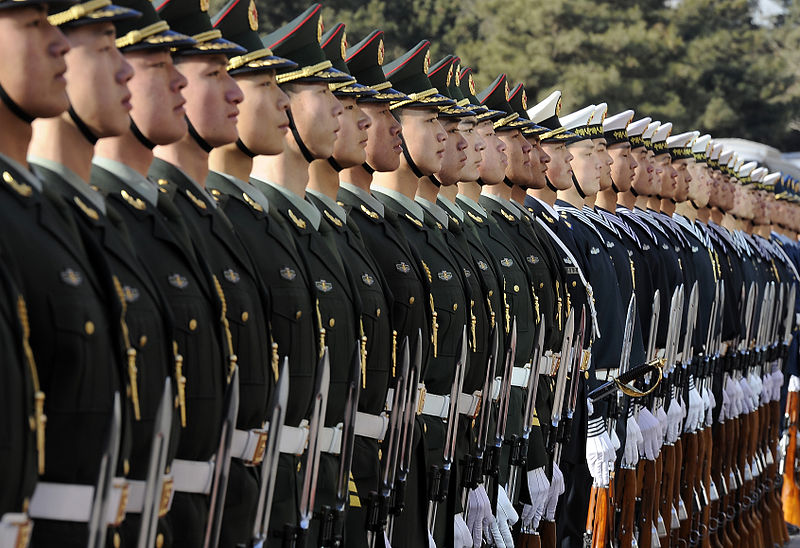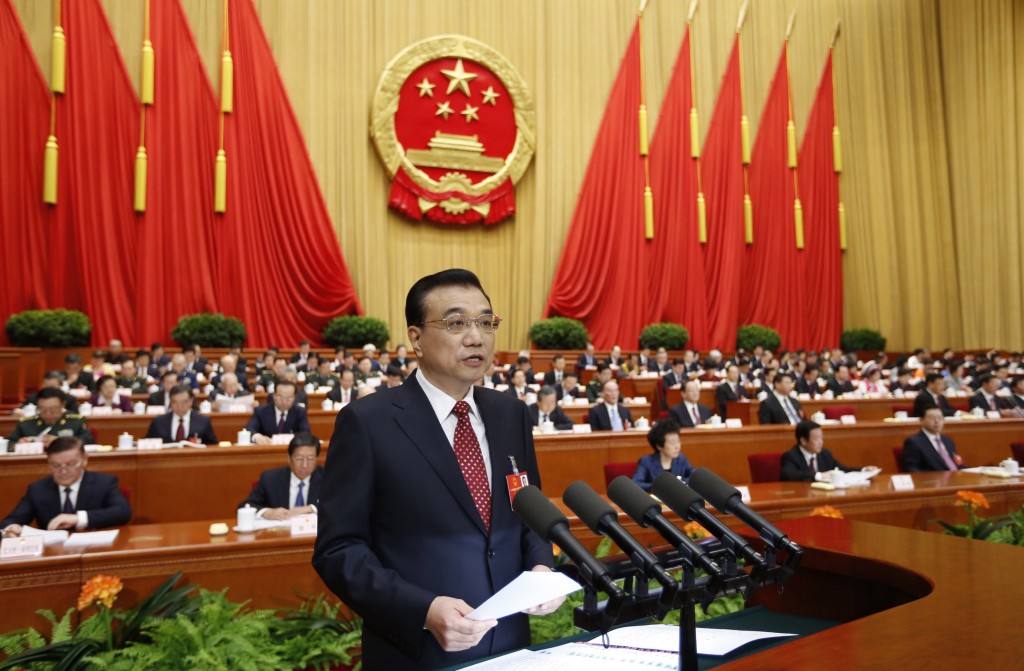
 Defending China's Defense Budget
Defending China's Defense BudgetChina's military spending has been criticized after the omission of a key figure, to which China's finance minister Xiao Jie proclaimed, "let me be very clear, there is no such thing as opacity in China's military spending." The Center for Strategic and International Studies has a website devoted to comparing the different estimates for China's military spending. While there is no standardized method, the U.S. DOD and Stockholm International Peace Research Institute estimate figures 1.2 to 1.5 times greater because China does not include expenditures such as its space program, extra-budgetary revenues from military-owned commercial enterprises, recruitment bonuses for college students, and provincial military base operating costs. China's reported gaps of expenditure have been decreasing over the past decade, however. Xinhua was quick to point out that seven-percent increase is "eclipsed" by the U.S. after China announced its $145 billion defense spending plan, which totals less than a quarter of what the U.S. spends.
 "Two Sessions" Tax Savings & Jobs
"Two Sessions" Tax Savings & JobsChina plans to further simplify its value added tax (VAT) regime, which could save Chinese businesses 570 billion yuan ($85 billion) in taxes in 2016 alone as Premier Li Keqiang promised in his annual Government Work Report to the National People's Congress during the weekend. The South China Morning Post explains the potential effects of this tax overhaul. Government plans to roll out tax relief measures to boost smaller businesses and reduce personal income tax burden as well as for families with two children. Tax cuts and jobs have been heatedly discussed between the country's top political advisors and delegates to the National People's Congress, who are meeting in Beijing this week for what is known as the "Two Sessions." China Daily has compiled a list of key words highlighted in Li's Government Work Report. Achieving a 6.5 percent GDP growth and improving people's livelihood are two main themes.
 Korean Peninsula Still a Top Concern
Korean Peninsula Still a Top ConcernInternet users in China are keeping a keen eye on the latest developments in the Korean Peninsula, with the deployment of the THAAD anti-missile system. The system was installed on a golf course owned by South Korea's Lotte Group, whose businesses span food, hotels, chemicals, and real estate, and has become the target of Chinese boycott. Based on the hot search words on Baidu from Mar 4-8, other popular stories include China's military buildup in South China Sea, U.S. fining ZTE of China $1.19 billion for breaching sanctions, and the latest travel ban proposed by the Trump administration. According to Baidu and a separate People's Daily ranking, a number of recurring themes have emerged for the week that include personal income tax rework, housing and property tax, the two-child policy, overcapacity, food safety and the national budget.
 Emperor Wu of Han Initiates the "Silk Road"
Emperor Wu of Han Initiates the "Silk Road"On March 9, 141 BCE, Liu Che, posthumously known as Emperor Wu of Han, assumed the throne of the Han Dynasty in China, ruling for 54 years. Emperor Wu is famous for having led Han China through its greatest expansion during the Tang dynasty, centralizing state power, and establishing Confucianism as official imperial doctrine. He is also credited for ordering his trusted aide Zhang Qian to embark on an ambitious international trade mission that was eventually expanded into the ancient trading route(s) known as the "Silk Road".
Prepared by China-US Focus editorial teams in Hong Kong and New York, this weekly newsletter offers you snap shots of latest trends and developments emerging from China every week, while adding a dose of historical perspective.